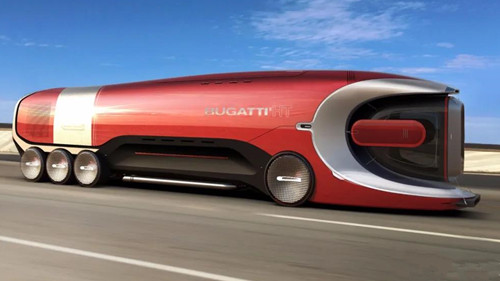Mobile application of fuel cell-hydrogen energy heavy truck
In recent years, China’s hydrogen fuel cell vehicle industry has made good achievements and progress. According to statistics, there are currently more than 5,000 hydrogen fuel cell vehicles in operation, with a cumulative operating mileage of more than 100 million kilometers, and more than 140 hydrogen refueling stations that have been built or are under construction.

However, behind the rapid expansion of the industry, there are still some issues worth pondering. The first is product dislocation. The medium and heavy trucks that are most suitable for the development of hydrogen fuel cell technology have been marginalized by policies.
Data shows that by the end of 2020, the number of hydrogen fuel cell vehicles in my country has reached 7352, which is an explosive growth compared with the sales of only 10 vehicles five years ago.
Although it has not yet surpassed Japan and South Korea, my country has already proved with market performance that commercial vehicles are more suitable for the application of hydrogen fuel cell technology. In fact, South Korea’s Hyundai and Japanese car companies are also embarking on the layout of the fuel cell commercial vehicle market.
However, not all types of commercial vehicles are suitable for the application of fuel cell technology. Peng Lixin, vice president of Cummins, said: “Of course, the fuel cell vehicle industry has experienced a certain degree of market dislocation. Passenger cars and buses, which are mainly urban applications, are more suitable for the development of lithium battery technology, and the most suitable application scenarios for fuel cells are There are medium and heavy trucks with long-distance demand.”
Toyota, as the first car company to sell over 10,000 hydrogen fuel cell vehicles, has always been a leader in the development of hydrogen fuel cell vehicles.
In April 2017, Toyota released its first hydrogen fuel cell heavy truck, the first-generation hydrogen fuel cell heavy truck Alpha. Alpha started operating in the same month, conducting tests and real hauling operations in the U.S. Beach Harbor and Los Angeles Harbor and surrounding areas.
In April 2019, Toyota launched a new version of the zero-emission fuel cell heavy-duty electric truck FCET in Los Angeles based on the two proof-of-concept prototype trucks Alpha and Beta. The fuel cell heavy truck was jointly developed by Toyota and American truck manufacturer Kenworth. The engine uses Toyota’s fuel cell technology and has enhanced functions and performance. The cruising range is estimated to be 300 miles (approximately 480 kilometers).
About Cheersonic
Cheersonic is the leading developer and manufacturer of ultrasonic coating systems for applying precise, thin film coatings to protect, strengthen or smooth surfaces on parts and components for the microelectronics/electronics, alternative energy, medical and industrial markets, including specialized glass applications in construction and automotive.
Our coating solutions are environmentally-friendly, efficient and highly reliable, and enable dramatic reductions in overspray, savings in raw material, water and energy usage and provide improved process repeatability, transfer efficiency, high uniformity and reduced emissions.
Chinese Website: Cheersonic Provides Professional Coating Solutions

